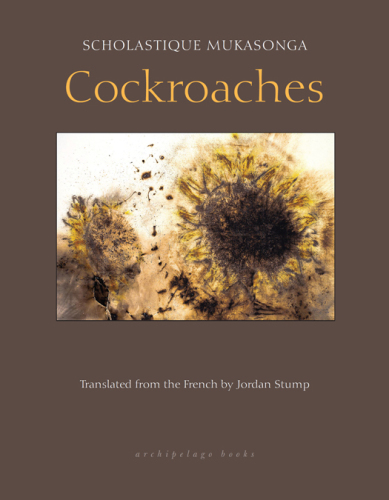
Cockroaches
کتاب های مرتبط
- اطلاعات
- نقد و بررسی
- دیدگاه کاربران
نقد و بررسی

August 15, 2016
In this harrowing autobiographical novel, a Rwandan woman recounts a girlhood riven by the vicious war between the Tutsis and the Hutus, a conflict that left 37 of her family members murdered in the 1994 genocide. Opening with her family’s expulsion from their native village, the early chapters illustrate the major trials and minor joys of communal exile. Scenes of unthinkable horror abut moments of great humanity: the narrator sees a friend maimed by a grenade; she connects with her mother by helping her tend to her garden. Academic excellence delivers the narrator from the refugee camp, first to a selective boarding school, then to an academy for social workers across the border in Burundi. After a final visit to her parents in 1986, the narrator settles in France, where she watches the genocide from afar, painfully helpless. Nearly a decade later, the narrator returns to the site of the refugee camp, where no signs of the lives lost can be found. Mukasonga’s (Our Lady of the Nile) powerful and poignant book plants itself in that terrible absence, its stone etched with a difficult, necessary grief.

A child's view of one of history's most chilling instances of genocide.Born in 1956 in southwestern Rwanda, Mukasonga (Our Lady of the Nile, 2014, etc.) has lived in France for most of her life, working as a social worker while writing memoirs, novels, and short stories. "I wasn't only Tutsi," she recalls of the ethnic turmoil that made her a refugee, "I was an Inyenzi, one of those cockroaches they'd expelled from the livable part of Rwanda, and perhaps from the human race." Such people, she writes later, were "fit only to be crushed like cockroaches, with one stomp. But they preferred to watch us die slowly." The "they" in question are not just the Hutus who attacked their Tutsi neighbors, but also neighboring nations, aid workers, diplomats, and others who stood by and did nothing. It may surprise readers to learn that Mukasonga is not writing of the later, infamous Rwandan genocide of the 1990s but instead of the post-colonial power struggle that precipitated it; the ingredients were the same, with long-lingering resentment over the Tutsis' relative privileges in a stratified society. Her point of view, however, is more personal and less synoptic; she protests that her father "was not an aristocrat with vast herds of cows," but because he could read and write and was an accountant, to say nothing of his ethnicity, he presented a target. As her story unfolds, we learn that 37 of her family members died, along with perhaps 1 million of her fellow Tutsis. It is a harrowing tale that is only the beginning of a larger story of murder and division. As she writes toward the end, Rwanda, a place of stunning beauty, "is also the land of tears, and the roads we travel take us on a long journey through horror and grief." A thoughtful, sobering firsthand account of the refugee experience, a story that speaks to readers far beyond the African highlands. COPYRIGHT(1) Kirkus Reviews, ALL RIGHTS RESERVED.

Starred review from October 1, 2016
Following her award-winning debut novel, Our Lady of the Nile, which revealed in quietly devastating detail the tensions between Hutus and Tutsis in 1970s Rwanda through the microcosm of a Catholic girls' boarding school, Mukasonga returns with an expanded autobiographical novel chronicling the endemic violence in her homeland. The book opens in the late 1950s, when the first Hutu-led violence against the Tutsis occurred, then moves inexorably through the years of internal exile, deprivation, and escalating violence to 1994 and "the genocide, the long-awaited horror." The Hutus called Tutsis Inyenzi, or cockroaches, and they were to be stamped out brutally. Mukasonga, who was not in Rwanda at the time and lost almost her entire family, chillingly observes, "I was not with my family when they were being hacked up with machetes." The entire novel is related with brave, sobering, steely-eyed calm. VERDICT For all readers interested in history as fiction; see also Senegalese journalist Boubacar Boris Diop's Muramai, The Book of Bones, another exceptional novel about the genocide told from multiple perspectives, published in 2006 by Indiana University Press and rereleased this summer.
Copyright 2016 Library Journal, LLC Used with permission.

























دیدگاه کاربران